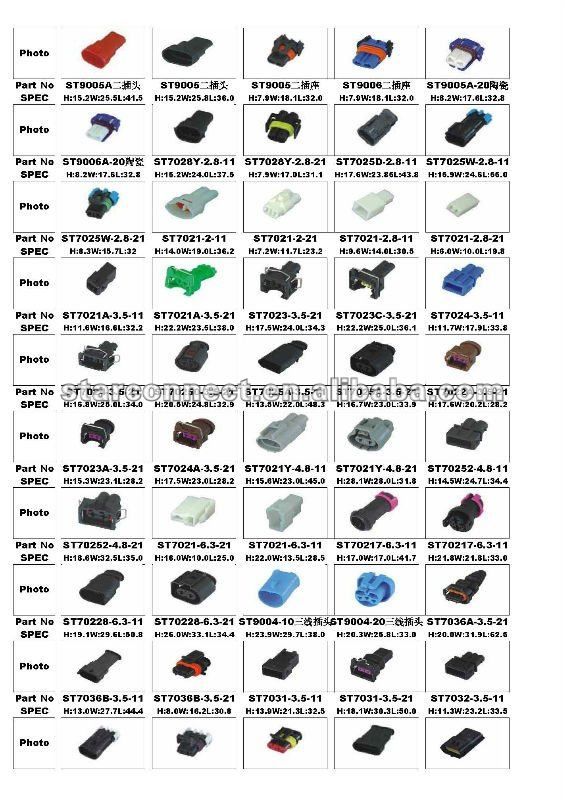Food Truck Start-Up Expenses: Essential Costs for New Mobile Food Businesses
Understanding food truck start up expenses
Start a food truck business like maria’s require careful financial planning and understanding of initial costs. The difference between operational expenses and start up expenses can importantly impact business success. Start up expenses are one time costs incur before the business begin generate revenue, while operational expenses are ongoing costs necessary to keep the business run.
Common start up expenses for food trucks
Purchase the food truck
The nigh significant start up expense for maria’s food truck would be the purchase of the actual vehicle. New food trucks can cost anyplace from $50,000 to $$175000, depend on size, features, and customization. Use food trucks typically range from $ $3000 to $ 1$1000. This expense represent the foundation of the business and is doubtlessly a starstart-upt.
The vehicle may require additional modifications to meet health department requirements and business needs. These modifications might include:
- Commercial grade kitchen equipment installation
- Ventilation systems
- Fire suppression systems
- Specialized electrical wiring
- Water tanks and plumbing
- Serve windows and counters
Kitchen equipment and appliances
Equip the food truck with necessary cooking appliances and tools is another major start up expense. The specific equipment need depend on maria’s menu, but might include:
- Commercial grade refrigerators and freezers
- Grills, griddles, or fryers
- Ovens or stove tops
- Food processors and mixers
- Preparation tables and cutting boards
- Storage containers and shelving
- Po’s( point of sale) system
These items are considered start up costs because they’re purchase before the business begin operations and are essential for the basic functioning of the food truck.
Permits and licenses
Before maria can lawfully operate her food truck, she must obtain various permits and licenses. These costs vary by location but typically include:
- Business license
- Food service permit
- Health department certification
- Fire department permit
- Mobile food vendor permit
- Parking permits for various locations
- Seller’s permit for collect sales tax
These regulatory expenses are emphatically start up costs, as they must be pay before the first day of business.
Business registration and formation
Legal business formation costs are another category of start up expenses. Maria will need to:
- Register her business name
- Form a legal business entity (lLLC sole proprietorship, etc. )
- Obtain an employer identification number (ean))
- Pay for any registration fees with state and local authorities
These costs establish the legal foundation for the business and are incurred before operations begin.
Insurance
Initial insurance policies represent another start up expense. Food truck businesses typically require:
- Commercial vehicle insurance
- General liability insurance
- Property insurance
- Workers’ compensation insurance (if hire employees )
- Food contamination insurance
The first premium payments for these policies would be considered start up expenses.
Initial inventory
The first stock of food ingredients and supplies need to begin operations is a start-up expense. This includes:
- Food ingredients base on menu offerings
- Packaging materials (containers, napkins, utensil )
- Clean supplies
- Paper goods
- Condiments and seasonings
While inventory will be an ongoing operational expense, the initial stock will purchase before opening is will consider a will start up cost.
Branding and marketing materials
Create a brand identity and initial marketing materials fall under start up expenses:
- Logo design
- Menu design and printing
- Vehicle wrap or exterior painting
- Website development
- Initial social media setup and promotion
- Business cards and flyers
- Signage
These costs help establish the food truck’s identity in the marketplace before serve the first customer.
Technology and software
Various technology systems may be need from day one:

Source: foodtruckoperator.com
- Po’s system hardware and software
- Accounting software
- Inventory management system
- Mobile payment processing equipment
- Initial website host fees
- Business management apps and tools
These technological investments are typically made before opening and constitute start up expenses.
Distinguish start up expenses from operational expenses
What are not start up expenses?
To advantageously understand start up expenses, it’s helpful to identify what wouldn’t qualify. The following would typically be considered operational expenses kinda than start up costs:
-
Monthly rent for commissary kitchen space
While the initial deposit might be a start-up expense, ongoing monthly rent is an operational cost. -
Employee wages
Regular payroll is an operational expense, though initial training before opening might be considered start-upup cost. -
Fuel costs
Regular fuel for the truck is an operational expense. -
Utility bills
Ongoing utilities are operational expenses. -
Routine maintenance
Regular vehicle maintenance is an operational cost.
Tax implications of start up expenses
Understand the distinction between start up and operational expenses is important for tax purposes. The IRS allow businesses to deduct up to $5,000 in start up costs in the first year of business, with additional amounts amortize over 15 years. Right categorize expenses can provide significant tax advantages.

Source: micoope.com.gt
Finance start up expenses
Maria have several options for fund her food truck start up expenses:
Personal savings
Use personal funds is the virtually straightforward approach but require significant savings.
Small business loans
Traditional bank loans or SBA loans can provide necessary capital for start up expenses.
Equipment financing
Specific loans for purchase the food truck and equipment can spread the cost over time.
Crowdfund
Platforms like kickstarter or Indiegogo allow entrepreneurs to raise funds from community supporters.
Investors or partners
Bring on business partners or investors can provide capital in exchange for equity.
Create a start-up budget
For maria to successfully launch her food truck, she should create a comprehensive start up budget that include all necessary expenses. A typical food truck might require between $50,000 and $$175000 in total start up costs, depend on the vehicle, equipment, and location.
A sample start up budget might allocate funds as follows:
- Food truck purchase and customization: 50 60 % of budget
- Kitchen equipment and appliances: 15 20 % of budget
- Permits, licenses, and insurance: 5 10 % of budget
- Initial inventory: 5 10 % of budget
- Branding and marketing: 5 8 % of budget
- Technology and software: 3 5 % of budget
- Contingency fund: 10 15 % of budget
Common start up mistakes to avoid
When plan start up expenses for a food truck, entrepreneurs oftentimes make these costly mistakes:
Underestimate costs
Many first time food truck owners importantly underestimate the total start up costs, lead to financial strain before the business yet open.
Neglecting permits and regulations
Fail to research and budget for all require permits and licenses can result in delays, fines, or yet being unable to operate lawfully.
Overspend on equipment
Purchase top of the line equipment for everything can rapidly deplete start up funds. Focus on quality for essential items while find cost-effective solutions for less critical needs.
Insufficient marketing budget
Much food truck owners underestimate the importance of initial marketing to build awareness and attract customers.
No contingency fund
Fail to set aside funds for unexpected expenses or delays can derail a food truck business before it gets establish.
Case study: successful food truck start up
Consider the example of a successful taco truck that launch with a $75,000 start up budget:
- $40,000 for a use food truck with basic customizations
- $12,000 for kitchen equipment and appliances
- $5,000 for permits, licenses, and initial insurance premiums
- $6,000 for initial inventory and supplies
- $4,000 for branding, website, and marketing materials
- $3,000 for pPOSsystem and business software
- $5,000 contingency fund
By cautiously plan and allocate start up funds, the business was able to launch successfully and reach profitability within six months.
Conclusion: which expenses are start up costs for maria’s food truck?
To forthwith answer the original question: start up expenses for maria’s food truck would include the purchase and customization of the food truck vehicle, kitchen equipment and appliances, permits and licenses, business registration costs, initial insurance premiums, first inventory stock, branding and marketing materials, and technology systems need to begin operations.
Monthly operational costs like commissary kitchen rent (after initial deposit ) employee wages, routine maintenance, fuel, and utilities would not be coconsideredtart up expenses, but kinda ongoing operational costs.
By right identify and budget for start up expenses, maria can set her food truck business on a path to success from day one. Understand the distinction between start up and operational expenses will help with both initial planning and ongoing financial management of her mobile food business.



